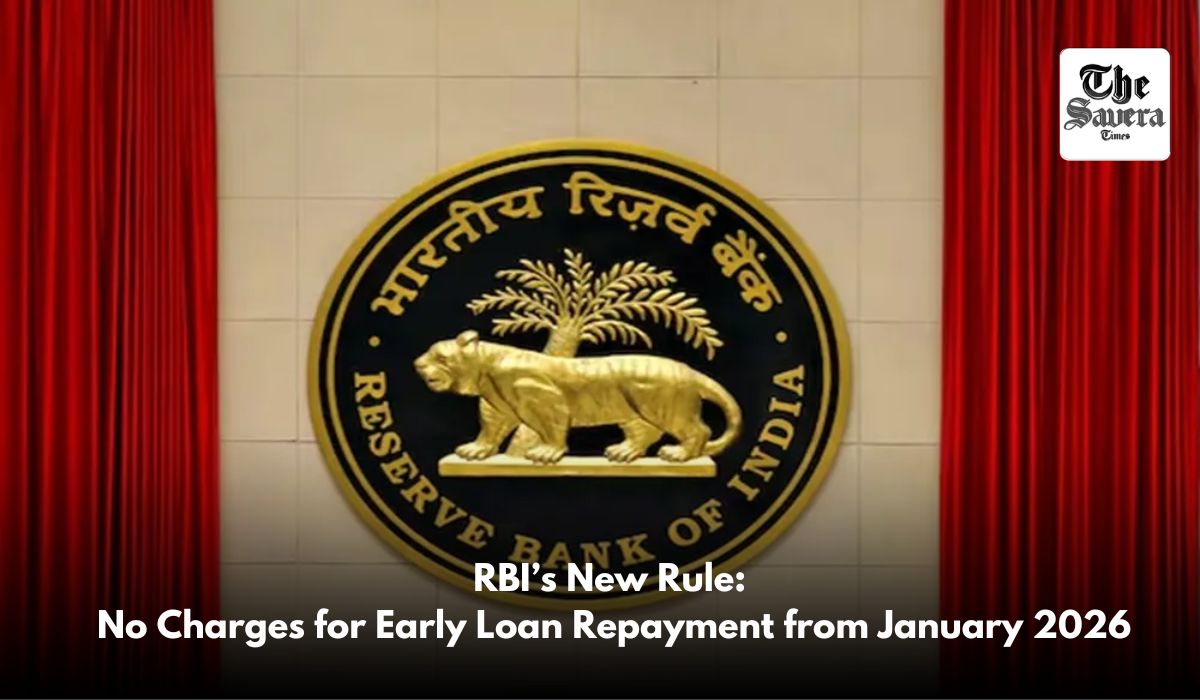
New Delhi, July 4: The Reserve Bank of India (RBI) has given relief to loan takers. Actually, RBI has decided to abolish the pre-payment charge on loans with floating interest rates. This new rule of the Reserve Bank will come into effect from January 1, 2026.
If a person repays his loan in part or in full before time, then the bank used to charge this charge. The new rule will be mandatory for all banks and regulated institutions, including non-banking finance companies (NBFCs). This will directly benefit crores of loan takers, especially those taking home loans and MSE loans.
Who will benefit from RBI’s decision?
This decision will benefit those people who have taken a loan at a floating rate for non-commercial work. Whether a person has taken a loan alone or with a co-obligant. No bank or NBFC will be able to charge pre-payment charges on all such loans.
Apart from this, if an individual has taken a loan for business or a Micro and Small Enterprise (MSE) has taken a loan, then commercial banks will not levy pre-payment charges. However, this exemption will not apply to certain categories of institutions.
Which institutions will not get the benefit?
Relief on loans up to ₹ 50 lakh
If an individual or MSE has received a loan of up to ₹ 50 lakh from the above mentioned institutions, then pre-payment charge will not be levied on it. This includes Tier-3 Urban Co-operative Banks, State and Central Co-operative Banks and NBFC–Upper Layer (NBFC-ML).
Why did RBI take this decision?
RBI said that the investigation revealed that many regulated institutions were adopting different policies regarding pre-payment charges. This was creating confusion and disputes among the customers. Apart from this, some institutions were including such restrictive clauses in the loan agreement so that the customers could not switch to the option with lower interest rate.
RBI said that this relief will not depend on the source of loan repayment. That is, whether it is part payment of the loan or full loan payment and whatever is the source of the fund, now no charge will be levied. Also, any kind of lock-in period will not be mandatory.
What will be the benefit on fixed term loan?
According to the new rules, even if a pre-payment charge is levied on a fixed term loan, it should be based only on the pre-paid amount. However, the rules are slightly different in the case of overdraft or cash credit. If the loan taker informs of not renewing before time and finishes the loan on the due date, then no pre-payment charge will be levied.
Complete details are required in the key facts statement
RBI has also directed that all rules related to pre-payment charges should be mentioned in the loan acceptance letter, contract and key facts statement (KFS). If any charge is not mentioned in KFS beforehand, then it cannot be recovered later. This decision is considered a major reform towards transparency and competitive banking services for customers.
What does the RBI decision mean for customers?
This decision of RBI means that if you have taken a loan (such as a home loan) on a floating interest rate and you want to repay it a little or fully before the scheduled time, then the bank or financial company will not be able to charge you any pre-payment penalty. The condition here is that the loan should have been approved or renewed on or after January 1, 2026.
Banks or companies used to levy this charge on customers so that customers could not switch to a cheaper loan from another bank or make a prepayment. This gave them a chance to earn full interest, but now this will not happen.
